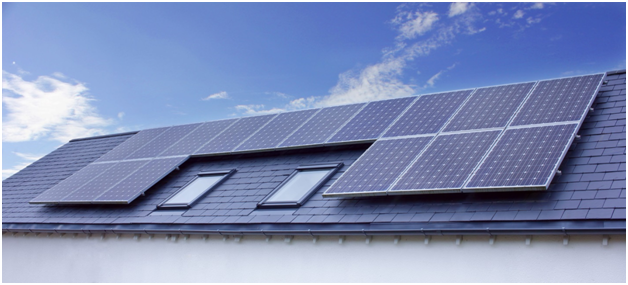US solar capacity has grown exponentially over the years and now stands at 97.2 gigawatts. To put that in perspective, that’s enough to power 18 million average homes.
If you’re planning on joining the many homeowners across the country using solar power, you need to know about the best types of solar panels for residential use. Find out everything you need to know about going solar here.
Monocrystalline
Monocrystalline or single-crystal panels are solar panel cells that are made of pure silicon crystal. This design allows electrons to move through the cell freely. You can identify them by their black color.
There are various types of solar panels, but monocrystalline is the most efficient solar option out there. This type is also the longest-lasting and has the highest power capacity.
Keep in mind, your location and the amount of sun you get play a part in the efficiency of your solar panels. Also, this is a more expensive option but might be worth it, depending on your sun number score.
Contact a solar panel installation company to learn more about your solar panel options.
Polycrystalline
Polycrystalline solar panels are still very efficient, even if they’re not as powerful as monocrystalline options.
Polycrystalline cell panels contain many silicon cells, as opposed to a single silicon crystal, which means electrons can’t move quite as efficiently. As a result, this isn’t as efficient as monocrystalline panels.
That isn’t to say polycrystalline solar panels aren’t a good choice. Thanks to new technology, polycrystalline solar panels have seen an increase in power and efficiency.
Polycrystalline cells are more affordable, which could be a benefit to homeowners on a tight budget.
However, polycrystalline solar panels have a lower heat tolerance. They may not be the right choice in high-heat environments.
Thin-Film
The last of the home solar panels are thin-film types. Thin-film solar panels are very thin and flexible but aren’t very efficient and have low-efficiency ratings.
Homeowners that opt for this type will need to use more to meet their power needs. If you have limited space to work with, it may not be one of the best solar panels for you.
However, there are some benefits to thin-film solar panels. Thin-film is less expensive, and they aren’t as obvious on the roof as other types. This makes them one of the most attractive options to homeowners that don’t want obvious solar panels visible.
Thin-film solar panels are also easy to install and handle heat better. Depending on your budget, location, and preferences, thin-film solar panels could be a viable option.
Which Types of Solar Panels to Choose
These are the three types of solar panels for residential properties. Aside from the type of solar panel you choose, you should also consider the brand and the installer. Both of these can be as important, if not more so.
Contact a solar panel installation company to discuss your options, find out your sun number score, provide more information on making the most of your solar panels, and get started with the installation.
Interested in reading more articles like this one? Check them out in our “Home” section.

